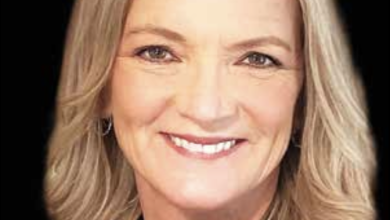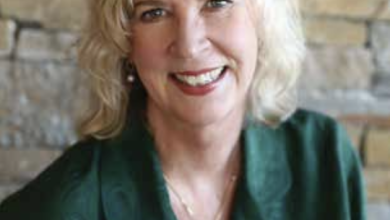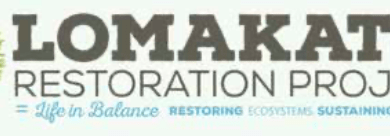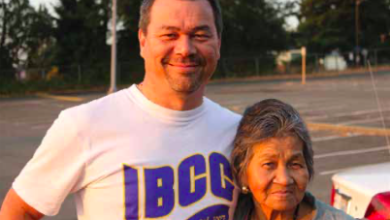Local Spotlight: The Spirit of Ashland Artistry of Leadership in City Government (Part 2 of 3)
A Three-Part Interview Series by Jordan Pease and Three-Term Ashland Mayor John Stromberg – September 2021 Issue of LocalsGuide Magazine– Ashland, Oregon
Great community leadership is born from an artistry in combining disparate talents and crafting them with vision, wisdom, dedication, and hard work. Here in part two of this three-part interview series, former Ashland mayor John Stromberg talks about his involvement with specific issues and his methods to address them following his twelve years leading the City Council, helping make Ashland such a quality place to live.
John and his wife Jane Stromberg have lived in Oregon for 35 years. John served three terms as Ashland’s Mayor, 2008-2020, plus four years on the Planning Commission, and two years as Commission Chair. Prior to moving to Ashland from Eugene in 2000, he worked in the private sector for twenty years as an organization and management consultant. His major emphases were on enabling groups to work together more effectively, facilitating organizational change, and training workers to do highly complex jobs. He has a Ph.D. in Business Administration and a Masters in Statistics from UC Berkeley, and a Bachelor’s degree in Physics from Caltech. He was recruited by the Economics Dept. of the RAND Corporation, where he did his dissertation on the “Internal Mechanisms of the Defense Budget Process.”
Thank you for giving your time again here, John. Please share your perspective on the 5G cell tower controversy. [Approaching that contentious issue] is another good example of how I would manage conflict during my time in office in general. Whereby I would take as much time as necessary to be sure everyone felt completely, accurately represented. Often this would change the tension by everyone feeling understood. From that point I might try to move toward building more points upon which everyone could agree, essentially engaging the entire group in working together on their issue instead of trying to attack, out-argue, or overwhelm the opposition.
Sometimes someone would make a creative proposal, or a heartfelt compassionate understanding of someone else’s feelings. Or a suggestion for a next step, taking a break, or researching factual issues under dispute, etc. There might be a breakthrough that led to a resolution, or taking a next step in genuinely working together, or deciding to have recourse to a fact-finder. Or, simply deciding to take a break and only then coming back together if everyone was willing to try to get further with the issue.
So, in the case of the 5G towers, the FCC regulations prohibited the consideration by local entities of any health effects from the system, which is based on saturation coverage of the community via many small antennas all over town. A citizen group had formed that was outraged by the restriction and wanted to present scientific studies that showed negative health effects. Whenever they talked about the issue to individual City Councilors, that outrage tended to dominate the conversation. Plus, they presumed that all the negative scientific studies were correct if a qualified scientist said they were.
The City Council wisely decided to devote a separate study session to the issue, which gave me time to help the group make its presentation and I spent many meetings with this, helping to shape what they would say and how it would be structured so that the Council, and the public, would feel they were getting objective information even if the Council’s hands were tied, so far as the City’s power to regulate the system. My main goal was to make a case for an interested, intelligent person who had no previous knowledge of the technology. They diligently organized their presentation, divided it up into manageable chunks, presented by different members of the group, and were able to bring in a technically knowledgeable attorney to draw their argument together at the end.
The City Council appreciated the efforts at organizing and presenting their material and also hearing from the expert, but they still felt they couldn’t take any action without getting into a legal struggle that the City Attorney said would be expensive and doomed to fail.
[It’s also worthy to note that] during our preparation, I found a professor at the University of California School of Public Health who had organized a large amount of current research on the negative effects of 5G. But I didn’t feel I could bring his information into the presentation without taking it over. I hoped the Council would ask for follow up, but they felt they couldn’t devote more time to an issue when they couldn’t take meaningful action. I refrained from contesting their decision. The group’s leader ran for the Council in the next election but didn’t win.
In what ways have you seen the advent of social media affect politics at the local level, distinct from the national level? In 1987, I was working on several projects for a large corporate client and the Internet and World Wide Web were just emerging as significant means of communications. Remember that the World Wide Web was first designed as a way for scientists, especially physicists, from many nations and cultures to share and discuss scientific discoveries. All of a sudden, the world had taken a huge step forward in its ability to communicate, not only across cultures, but across groups with different levels of power. The political implications were quickly apparent, how populist and ‘revolutionary’ groups could more effectively challenge the status quo.
Initially, I thought, this is going to be hard on autocratic regimes, which I think was true. But recent developments around the world demonstrate that the same technology, now much refined, can be used to attack political regimes. Not only is the ability to reach virtually everyone now possible, but propaganda is possible at the local level. By ‘propaganda’ I simply mean something loosely tethered to truth, repeated over and over as if it were true. For example, these days a lot of complex messaging is going on, with life and death implications, about vaccination and personal freedom. My point is that the political world at every scale, with minimal technology, had changed forever. And this has included our community of Ashland.
Around 2016, when I was just getting involved in governmental affairs, the main way to catch the attention of the community was to write an op-ed to the Ashland Daily Tidings newspaper, or to appear at a City Council meeting and hope one’s message would be reported by the Tidings. At the same time, the Tidings started allowing the posting of anonymous messages on various online bulletin boards. This opened the door for propaganda in a different form: attacks on character, intentions, expertise, etc., that might or might not be true, and would not be attributable to a particular individual person.
There were no fact checkers until much later, and news sources of all kinds eventually attempted to protect against abuse by implementing ‘acceptable use standards’ and online moderators.
My answer to your question is: what’s happening nationally is going on in the Ashland environment as well, with possibly different issues, values, and intentions, but a lot of equivalent impact on our community. Interestingly, intentional online communities have been formed recently to promote healthy, socially just communities.
Coming from a career as a problem solver in the private sector before you became mayor in 2008, what are the best short-term and long-term approaches in city government? I don’t see myself as a problem solver, because problems are often illusive issues. What I try to do is help organizations – in this case city government seen as a municipal services co-op – function more effectively for all of the community as a whole.
From this position a lot of things follow: First, take care of the workforce, so they feel recognized, valued and supported. Also try to create a working environment that embodies the key values of the community. In our case, that’s basically the full spectrum of progressive liberal values including tolerance for members with different values. Plus, for Ashland, all the aforementioned wrapped up in high quality of life, anchored at one end by the national cultural treasure of the Shakespeare Festival, at another end by our extraordinary natural environment and by the rich ‘diversity’ of the individuals who have chosen to come here over the years. In the 16 years I have been involved as a city official, I have seen an exceptional movement towards instability, but also the need and opportunity to reinvent ourselves.
CONTINUED IN PART THREE, COMING OCTOBER 2021.
In the final part of this interview next month, John details his extensive work since 2008 on wildfire control policy and forest undergrowth management.
READ PART ONE ONLINE: ashland.oregon.localsguide.com
Jordan Pease is a 20-year resident of Ashland and Founder/Director of Rogue Valley Metaphysical Library and Media Exchange. www.RVML.org




